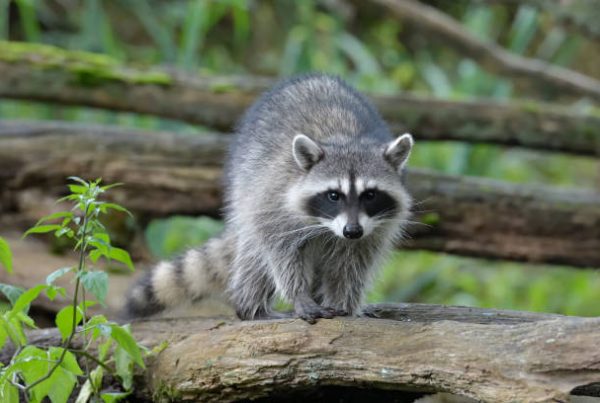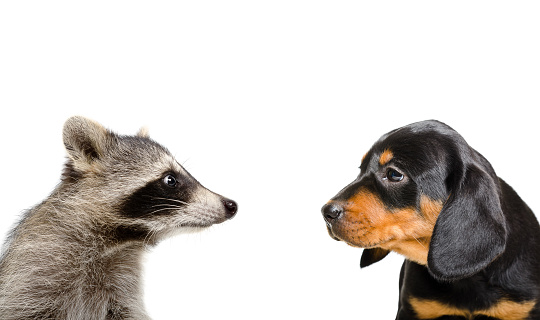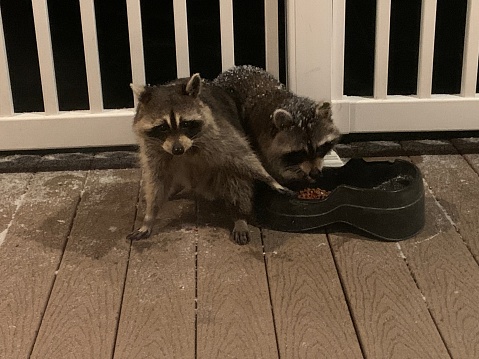Sharp teeth, large claws, and strong fingers, including an opposable thumb, are all features of raccoons. The critters are extremely clever and can obtain access to almost anything. There are, however, ways to get rid of these natural annoyances. It is quite possible to repel raccoons from your neighbourhood if you make a strategy and stick to it. Raccoons are drawn to both front and backyards for a variety of reasons. It is possible to resist them by taking protective measures. It’s important to keep in mind that they’re nocturnal creatures. Using motion lights can be really beneficial. Regular porch light may not be enough to make this option work. It’s possible that halogen or floodlighting might be more suited.
Preventive Measures
You should also clear out all of your trashcans. If you’re giving away a free feast, you can’t expect a pest-free environment. Raccoons prefer trash cans because they contain a variety of appetizing foods. Because people are not among a raccoon’s favourite things, installing a waterproof radio set on a talk channel can help to scare the little creatures away. If you turn on the radio late at night, the voices will scare them away. Having garbage cans with tight-sealing lids or placing something heavy on the lids at night is also a good idea. They will be deterred from delving through your garbage cans if you use a little bit of ammonia near it or even pour it on it.
Mothballs as Deterrents
The one big disadvantage of these solutions is that they frequently do not function to the extent that firms promise they will. Furthermore, many people are troubled by the chemical composition of these things. If consumed, they can be harmful to pets and children. The most commonly recommended products for keeping raccoons away are mothballs and ammonia. Because raccoons are huge creatures, mothballs are not highly poisonous to them, but they do emit a strong odour that raccoons loathe. Experts say mothballs and other DIY cures are only temporary solutions that won’t keep raccoons away indefinitely. Raccoons have been known to kick mothballs to the side so they don’t get in their way. They are more poisonous to humans and other animals than to raccoons. If you’re facing persistent issues, pest control Toronto can provide a safer and more effective solution.
Are Mothballs Dangerous?
Mothballs contain a variety of poisonous compounds that are especially dangerous to humans and can also be detrimental to pets. The chemicals can also harm your health, producing headaches, nausea, irritation of the eyes and nose, and coughing. Naphthalene is included in mothballs, and prolonged exposure can result in more significant health problems such as hemolytic anemia. Mothballs are mothballed that are used to kill moths in confined containers inside. Raccoons, for example, should not be used outside since they can pollute both the water and the soil, killing other species and contributing to air pollution. Children and pets might be particularly harmed by the odour. They are not worth the health risk when compared to other deterrents, and raccoons typically disregard them anyhow.
Usage of Mothballs
If the mothballs are still fresh and they can’t easily get around them, the Raccoon may decide not to bother you anymore and instead go to your neighbour! However, there may be other options, since leaving them in the garden might cause harm because the gas will escape and it would take months for them to decay completely. They can be particularly dangerous if you use them in public areas of your home, such as the attic, where raccoons may be present, or near garbage cans, where you must constantly go.











